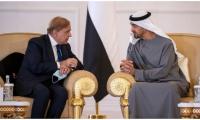The wild and dangerous transformation of speech and dialogue from a subtle, nuanced discussion to a more popular “nonsensical screech of wild words” – punctuated by vitriol and rancour – is a high-risk game.
The gradual descent to outright profanity reeks of the kind of fascism that prevailed during Hitler and Mussolini’s era. The indulgence in fascist tendencies by a section of the religious and the political leadershipbreeds a culture of intolerance and dogmatism in an already volatile and deeply fractured society.
We have seen the behaviour of mercurial, eccentric leaderships that have employed demagoguery and espoused narrow nationalism laced with hatemongering. This was demonstrated in the hatred for and expulsion of fellow Europeans during the Brexit debates; the decision of the alt-right in France, Germany and the Netherlands to advocate Islamophobia and resist economic immigrants; and the support that Trump’s policies received from white supremacists in the US against blacks, Mexicans, and Muslim immigrants.
India’s Modi has used narrow Hindutva values to carry out beef-lynchings that victimise minorities. Even our own politicians – from Bhutto to Altaf Hussain to Imran Khan to Nawaz Sharif and Z A Bhutto – have exhibited fascist tendencies at one time or the other.
The people, who are reeling under miserable living conditions, consider this to be an expression of boldness and, therefore, idolise leaders who voice these views. Fascist leaders succeeded due to their skilful manipulation of the petty bourgeoisie’s frustrations and anger against the wealthy and the political classes through rhetoric that whipped them into a frenzy. The people were naively led to believe in a saviour who would address all evil and revive a glorious past. This saviour often demanded blind faith. There is a constant refrain to a glorious past that could be resurrected, drowning all sorrows in its wake.
And here we are with our own saviours. While Imran is not far behind with his ‘Mr Clean’ image, Altaf Hussain took personality cult as a legitimising technique to frenzied heights. And, in order to neutralise Benazir Bhutto’s influence in Punjab before the elections in the early 1990s, Nawaz Sharif agitated the narrow nationalistic slogan of ‘jag Punjabi jag, teri pag no lag gaya dag’ (Wake up Punjabi your honour has taken a hit). At times, even Z A Bhutto acted like a rabble-rouser and started the Federal Security Force, akin to Mussolini’s paramilitary ‘squadrista’ or the ‘Blackshirts’. He also had little patience for the opposition and took extreme measures to stifle it, which ultimately led to his downfall.
Like other nationalists, Altaf Hussain also employed racism, violence, and incendiary rhetoric to cultivate an image of Mohajirs being discriminated by Sindhis, Punjabis and Pakhtuns. Like the Squadrista, Altaf raised a militant force that resorted to the worst form of terrorism against other ethnic groups living in Karachi, rattling the city in violence and mayhem for decades.
Demonstrating street muscle is another characteristic of such myopic leadership. Some attack the Supreme Court while others storm PTV. The political disrupter, as Imran would like to call himself, also profits from the middle-class support base, and employs sit-ins as a pressure tactic. He also routinely invokes nostalgia, offering naive solutions to restore Pakistan’s past glory from the 1950s and 1960s by referring to economic growth and his plans to restore respect for the green passport.
The religious forces employ the same theatrics as are used by their more secular cousins. Tahirul Qadri is another such rabble-rouser who has used religious rhetoric and sit-ins as a weapon to force his agenda on the PPP and the PML-N governments. He often flies in from Canada and swiftly returns after his mission is accomplished. Society is being confronted by a volatile mix of fascist trends, manifested in the political and religious leadership, and religious zealotry as tools of political exclusion. This has pushed society towards the precipice.
We have been here before, as all of the regional and nationalistic political forces worked to reduce the influence of the PPP and the PML-N. Also in the repertoire were the Taliban and militant sectarian forces, including the virulent Sipah-e-Sahaba Pakistan. The latter helped Gen Zia reduce the PPP’s influence in Punjab. In return, its leadership managed to enter parliament as MNAs under the mainstreaming formula of the 1990s.
During the 2013 election, the Taliban targeted the ANP election campaign, killing several of their candidates and eclipsing its chances of any substantive success in the province. The PPP was also targeted. Now it looks like it is the PML-N’s turn to be contained in parts of Punjab by the JuD and the Tehreek-e-Labbaik Pakistan – groups that showed their strength during the NA-120 by-election.
As the general elections draw closer, the assassination attempt on Interior Minister Ahsan Iqbal, allegedly by an activist of the Khadim Rizvi-led Tehreek-e-Labbaik Pakistan, proves how lethal bigotry can be.
In the immediate aftermath of the Faizabad protests, we saw PML-N leaders being attacked by the religious zealots. This degenerated further when someone claiming to be a ‘spiritual personality’ summoned political leaders to profess their faith and set this as a condition to remain in an alliance with the PML-N.
Fascist tendencies and religious extremism have far more serious repercussions than those elements that are against the political setup. This will continue to hold social moderation hostage to the forces of chaos, triggering a social breakdown that will resurrect the devil that we have struggled to overcome.
All this is happening at a time when we are at the cusp of winning the struggle against retrogressive militants and marching towards a moderate future. Perhaps we have an overpowering death wish to surrender to the same extremist forces and knuckle-draggers that drive us into the swampy world of structural hypocrisy, jeopardising national security and making the social fabric all the more unstable.
French scholar Alexis de Tocqueville contended that liberal mores and traditions within society are the bedrock of democracy. We need liberal and progressive forces more than ever to address the situation. We should have devoted this time toensuring social and economic justice, and legislating on personal liberties, justice and equality. But it seems our contrary impulses want to keep society in a fragile state.
Email: amjad.siddiqi@thenews. com.pk







